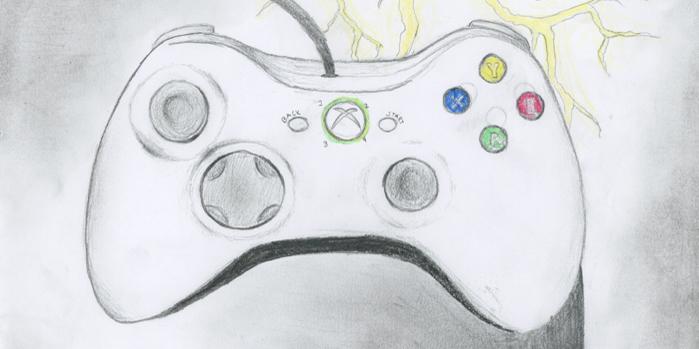Picking up the magic marker, the preschool student waved it around in the air. He was imagining it was a lightsaber from his favorite show, Star Wars: The Clone Wars. Turning around, he told his friend to grab a toy so they could have a lightsaber duel.
They dueled throughout the classroom, ignoring the warnings from the teachers and complaints from other students.
One student knocked the other over, causing him to get hurt.
“At four years old, it is harder for some of these children to regulate the intensity of their play or to understand or respect when a peer is not enjoying the play,” said a local preschool teacher who asked that her name not be used. “Sometimes the children might accidentally hit a friend when they are just pretending to hit, or they hit harder than they intended to and the friend will get angry and hit back.”
The Huffington Post reported that studies conducted of children who had been exposed to violence through videogames and television shows have shown that they can become numb to the horror and real consequences of their violent behavior.
Children may also mimic the violence they see and show more aggressive behavior toward their peers, teachers and parents. Some children learn to accept violence as a way to handle problems because of their exposure to violence at a young age.
“I teach preschool, and this year I have one girl and two boys who have aggressive behavior,” the preschool teacher said. “Some children seem to be less able to handle everyday frustrations and disappointments, but some aggressive behaviors occur when children are acting out fighting scenes from movies or television shows.”
According to the American Academy of Child and Adolescent Psychiatry, video games also cause other negative traits in children such as lower social skills, poor grades and lack of exercise.
Researchers disagree whether violent video games are a cause of shootings, bullying and domestic violence. Some say these games reward players for using violence, and it becomes a habit.
“Once I identify aggressive children’s triggers, I try to help them avoid situations that could cause them to lose their temper and teach them social skills to better handle those situations,” the preschool teacher said. “If a child gets angry every time it’s time to clean up, then I let that child know in advance of the clean up time that there are just a couple of minutes left to play. Our school has a rule that children can’t bring toy weapons to school for show and tell, and we also discourage play fighting on the playground.”
According to Science Daily, two out of every three boys and more than one in four girls between the ages of 12 and 14 have said they played at least one mature-rated video game in the past month.
“I play Call of Duty, Battlefield and NBA,” freshman Garrett Baker said. “In Call of Duty and Battlefield there is quite a bit of violence. You shoot people and blood splatters everywhere. You get headshots and stuff.”
By Caroline Ward


Leave a Reply